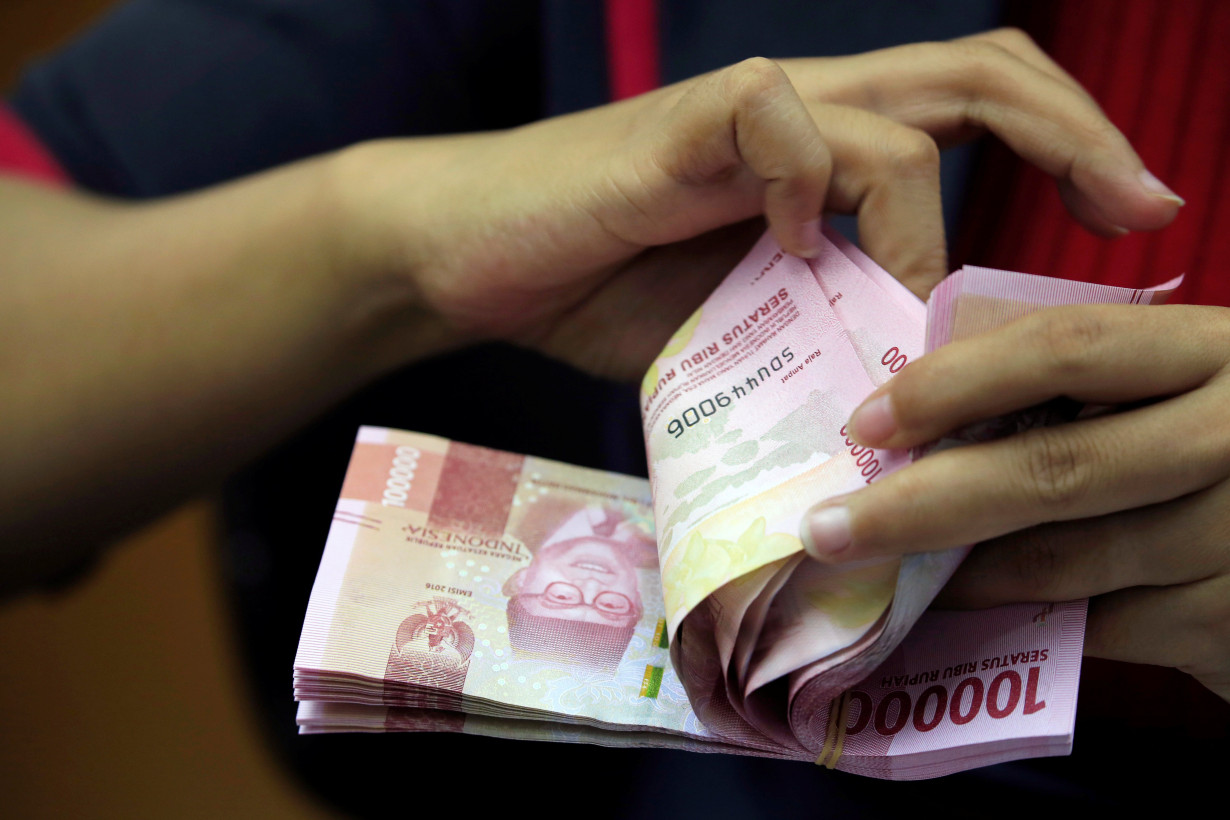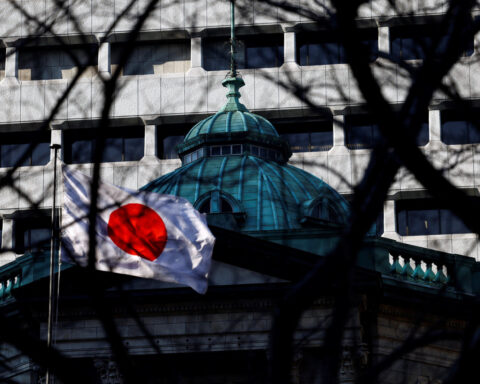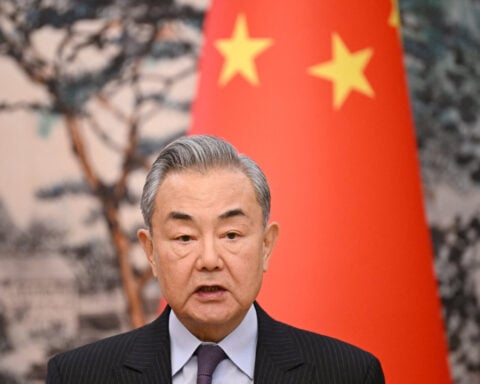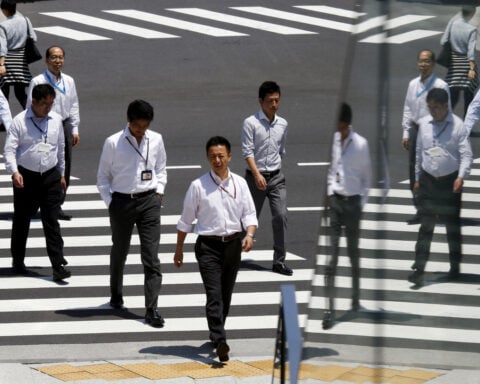By Himanshi Akhand
(Reuters) - Investors maintained their short bets on most Asian currencies as they assessed the prospects of an escalating global trade war after U.S. President Donald Trump's tariffs on major trading partners, a Reuters poll showed on Thursday.
Bearish positions on the Malaysian ringgit, the South Korean won, Taiwan dollar and the Indonesian rupiah firmed slightly from a fortnight ago, according to a poll of 11 respondents, while those on the Thai baht also ramped up.
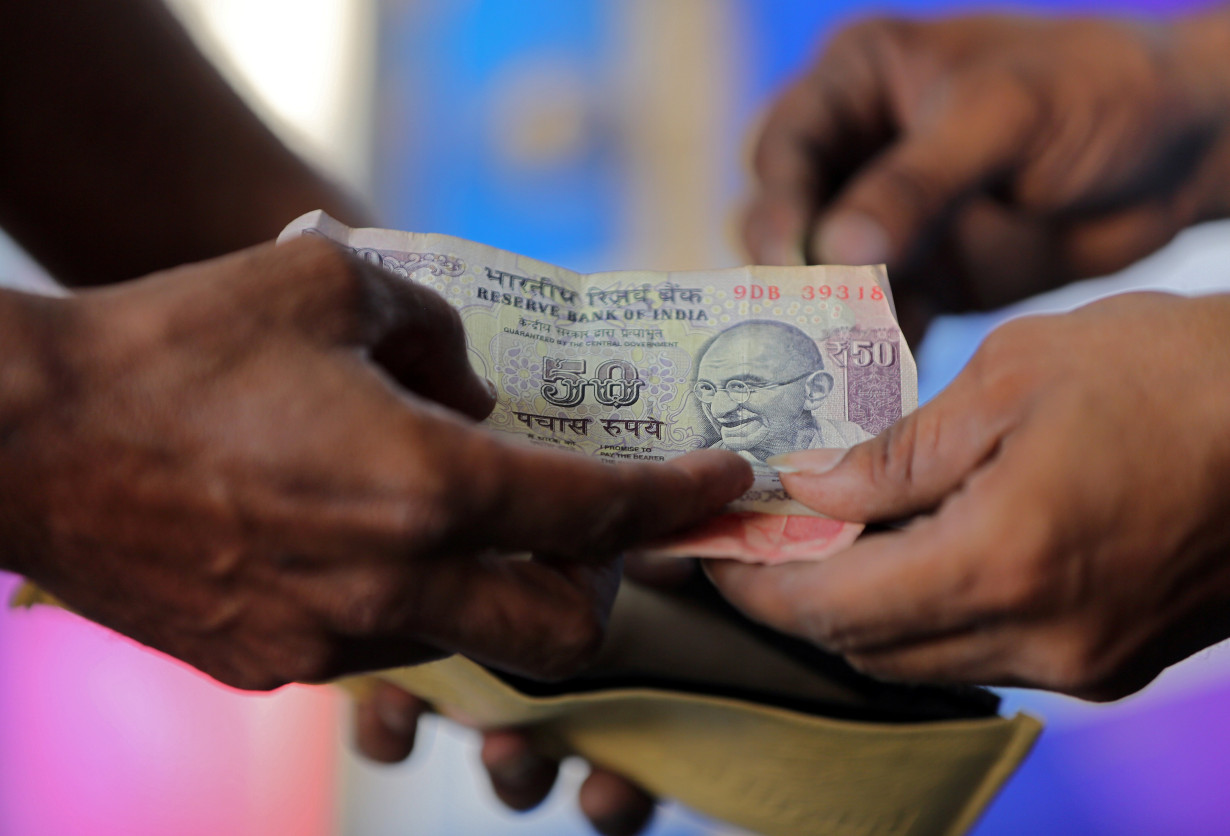
Last month, the Bank of Thailand cut its interest rate by a quarter point amid government calls for easing to support the economy and weaken the local currency to boost exports.
While the bank's statement highlighted "structural problems" in the economy more than trade tariffs, Barclays analysts believe global trade tensions were a bigger concern for the central bank.
With growing concerns over Trump's tariffs, market players will gradually increase short conviction on Asian currencies, especially given their recent strength, as risk reward for shorting could improve, said Poon Panichpibool, a markets strategist at Krung Thai Bank.
Trump's new 25% levies on imports from Mexico and Canada, as well as the doubling of duties on Chinese imports, which took effect on Tuesday, were met with retaliation from China and Canada.
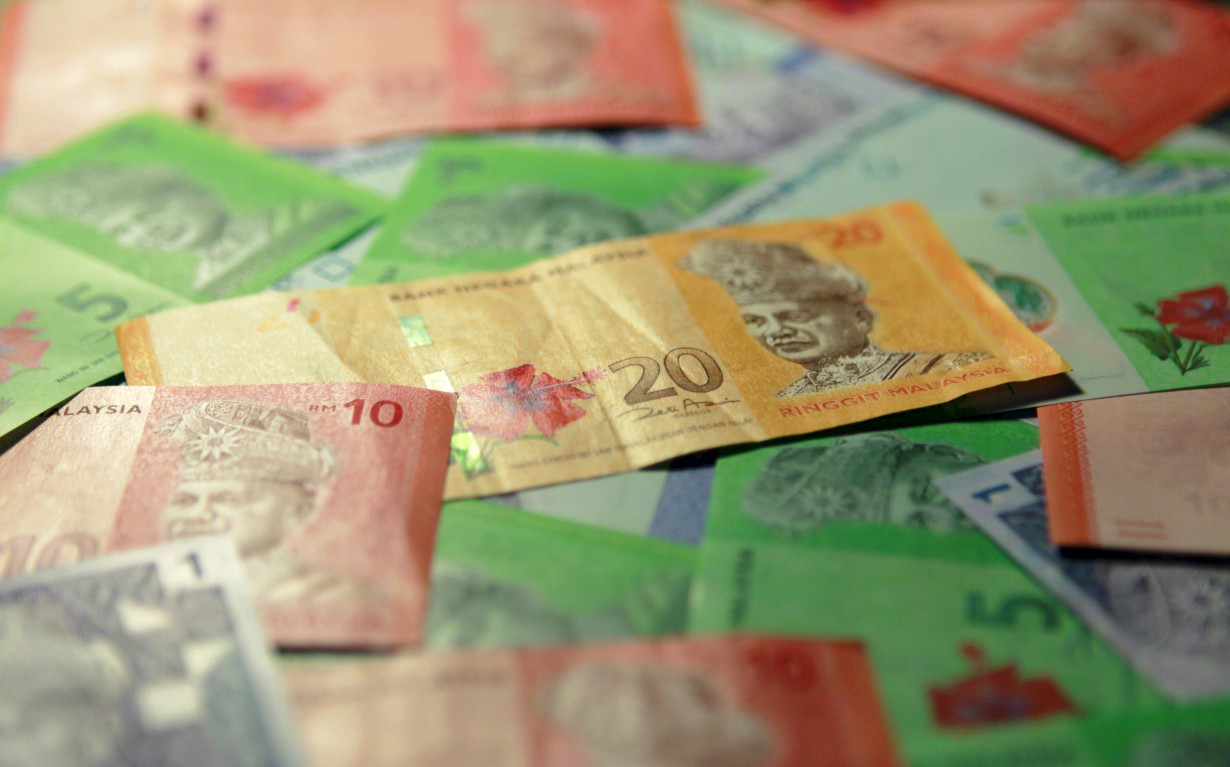
Despite the trade tensions, Asian currencies have remained relatively resilient in light of broad dollar decline and worries that U.S. growth is slowing.
"Due to the uncertain nature of Trump's policies and rising expectations of more Fed's rate cuts... market players will refrain from significantly increasing their short positions" until the U.S. economy recovers, Panichpibool said.
The Indian rupee, weighed down by foreign portfolio outflows and increased hedging in the onshore and the non-deliverable forward market, logged its fifth straight monthly fall in February and was the most shorted among Asian currencies.
Analysts at DBS said India's tariff rates are higher than the U.S. and Asian peers, which makes the economy susceptible to retaliatory as well as reciprocal tariff action.
The rupee and the rupiah, which dropped to its lowest level since March 2020 last week, are the worst performing Asian currencies so far this year.
Meanwhile, short bets on the Chinese yuan eased from a fortnight ago.
China's central bank has been setting its daily official yuan midpoint guidance stronger than market expectations since mid-November.
That, along with Beijing's ambitious economic growth target and increased support for domestic consumption, has helped stem yuan's losses despite more U.S. tariffs.
Bearish bets on the Philippine peso were also lowest since January 2024, with Barclays analysts attributing the currency's outperformance, compared to its peers, to sidelined model flows and relatively absent local dollar demand.
Short bets on Singapore dollar, the best regional performer this year, were largely unchanged.
The Asian currency positioning poll is focused on what analysts and fund managers believe are the current market positions in nine Asian emerging market currencies: the Chinese yuan, South Korean won, Singapore dollar, Indonesian rupiah, Taiwan dollar, Indian rupee, Philippine peso, Malaysian ringgit and the Thai baht.
The poll uses estimates of net long or short positions on a scale of minus 3 to plus 3. A score of plus 3 indicates the market is significantly long U.S. dollars.
The figures include positions held through non-deliverable forwards (NDFs).
The survey findings are provided below (positions in U.S. dollar versus each currency):
DATE USD/CNY USD/KRW USD/SGD USD/IDR USD/TWD USD/INR USD/MYR USD/PHP USD/THB
06-Mar-25 0.77 1.00 0.34 1.36 0.71 1.47 0.45 0.20 0.48
20-Feb-25 0.88 0.83 0.31 1.06 0.59 1.22 0.37 0.31 0.02
06-Feb-25 1.15 1.01 0.86 1.25 1.14 1.98 0.62 0.93 0.23
23-Jan-25 1.33 1.04 1.11 1.50 1.01 1.78 1.01 0.77 0.54
09-Jan-25 1.65 1.75 1.34 1.20 1.18 1.69 0.99 0.65 0.76
12-Dec-24 1.15 1.86 0.83 0.87 0.82 1.43 0.65 0.53 0.26
28-Nov-24 1.32 1.45 1.12 1.03 1.10 1.13 0.76 1.13 0.66
14-Nov-24 1.14 1.61 0.80 0.81 1.07 0.87 0.65 1.18 0.90
31-Oct-24 0.30 1.06 -0.03 0.59 0.60 0.82 0.11 0.81 0.09
17-Oct-24 -0.43 0.26 -0.44 0.04 0.24 0.67 -0.40 0.26 -0.28
(Reporting by Himanshi Akhand in Bengaluru; Editing by Janane Venkatraman)

 Trump has begun another trade war. Here's a timeline of how we got here
Trump has begun another trade war. Here's a timeline of how we got here
 Canada's leader laments lost friendship with US in town that sheltered stranded Americans after 9/11
Canada's leader laments lost friendship with US in town that sheltered stranded Americans after 9/11
 Chinese EV giant BYD's fourth-quarter profit leaps 73%
Chinese EV giant BYD's fourth-quarter profit leaps 73%
 You're an American in another land? Prepare to talk about the why and how of Trump 2.0
You're an American in another land? Prepare to talk about the why and how of Trump 2.0
 Chalk talk: Star power, top teams and No. 5 seeds headline the women's March Madness Sweet 16
Chalk talk: Star power, top teams and No. 5 seeds headline the women's March Madness Sweet 16
 Purdue returns to Sweet 16 with 76-62 win over McNeese in March Madness
Purdue returns to Sweet 16 with 76-62 win over McNeese in March Madness
